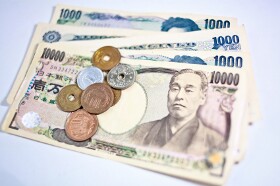
The Japanese yen is mixed against a basket of currencies to start the trading week as traders try to make sense of the economy. It is a case of is Japan in a recession or is the economy already recovering? Policymakers cannot seem to determine what is going on in Tokyo, and the recent influx of data is not helping investors make a concrete bet on or against the worldâs third-largest economy.
According to the Ministry of Finance, Japan recorded a 25.3% jump in its current account surplus in February from the same time a year ago. This represents the 56th consecutive month of a surplus. The trade surplus, an important measurement of international trade, was supported by lower crude oil prices and a primary income of $180 billion in returns on foreign investments.
Overall, Japanese exports declined 1.9% to $570 billion, while imports tumbled 6.6% to $520 billion.
The Cabinet Office released the latest economy watchers survey that compares consumer spending to current economic conditions. The index slipped to 44.8 March, from 47.5 in the previous month. It is also below the median estimate of 47.6 â anything under 50 indicates a contraction.
With inflation figures on the horizon, the Bank of Japan (BOJ) said that the national economy is anticipated to expand at a moderate pace, though exports and production levels might slide based on slumping foreign demand.
BOJ governor Haruhiko Kuroda says the core consumer inflation rate is inching towards its 2% objective, adding that medium- and long-term inflation expectations will be achieved. The business community thinks something else. The results of a quarterly BOJ survey found that businesses project consumer prices to climb 0.9% by next year and 1.1% three years from now, unchanged from the previous estimates in the fourth-quarter survey.
A separate BOJ report discovered that business sentiment fell to a two-year low.
That said, monetary policy may not normalize anytime soon as Kuroda averred that the central bank will likely keep short-term interest rates at -0.1%. Meanwhile, the federal government is still on track to raise the national sales tax from 8% to 10% to boost revenues for welfare spending.
The USD/JPY currency pair slid 0.2% to 111.49, from an opening of 111.71, at 15:51 GMT on Monday. The EUR/JPY advanced 0.22% to 125.56, from an opening of 125.28.
If you have any questions, comments, or opinions regarding the Japanese Yen, feel free to post them using the commentary form below.